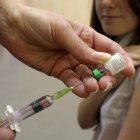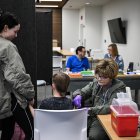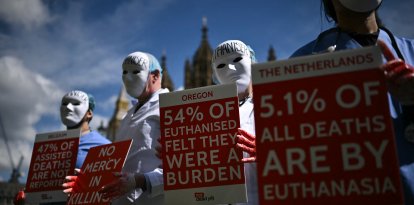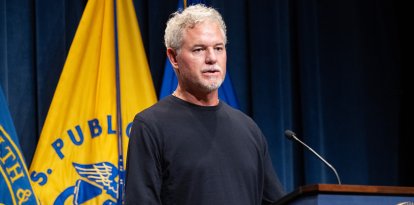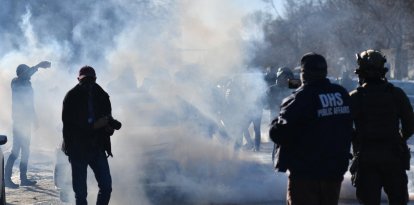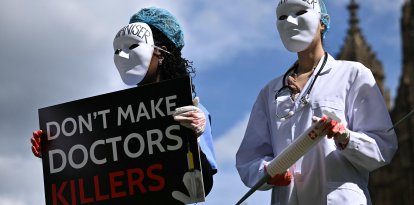Measles outbreak escalates: Confirmed case in person who died in New Mexico
This death comes shortly after the first confirmed death in a decade in the country due to the disease.
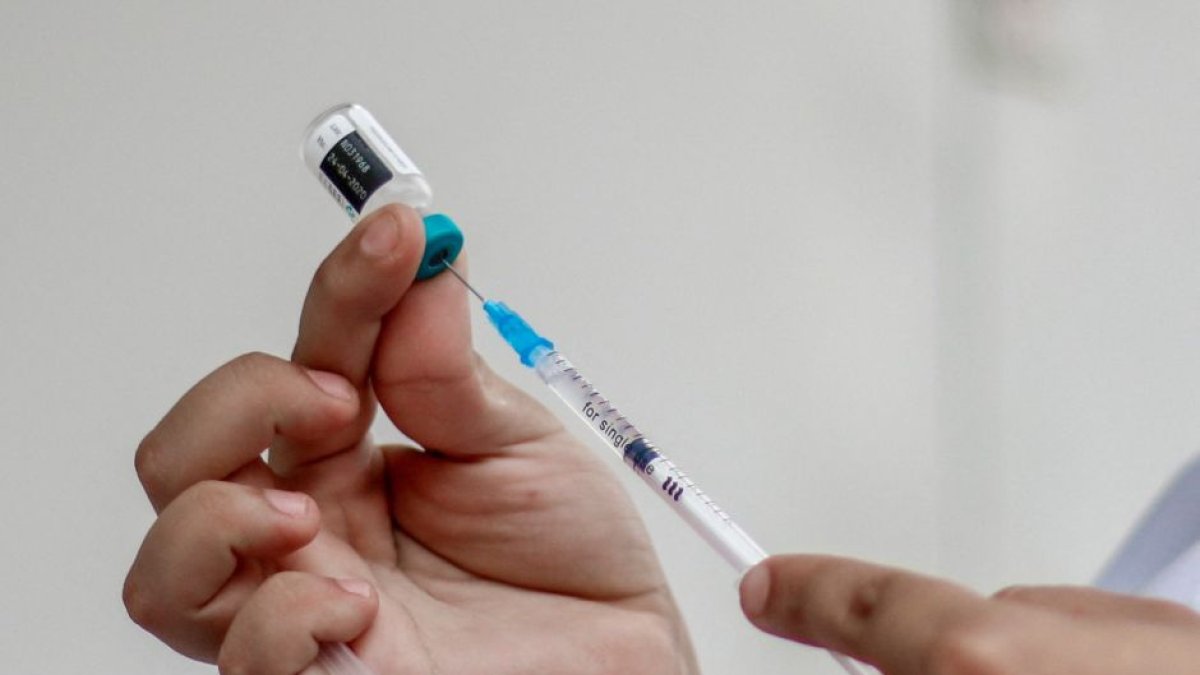
A woman prepares a measles vaccine syringe.
New Mexico health authorities reported Thursday that an unvaccinated person who died recently tested positive for measles, amid a growing outbreak in the southwestern United States. This death comes shortly after the first confirmed death in a decade in the country from the disease.
While authorities have not yet determined whether the virus was the direct cause of death, they noted that the person did not seek medical attention before dying. This case is part of an outbreak that originated in west Texas and has already recorded at least ten infections in Lea County, N.M., bordering Gaines County, Texas, where most of the infections have been concentrated.
In Texas, the outbreak has affected nearly 160 people and has resulted in the hospitalization of 22 patients. Although the New Mexico cases have not been officially linked to the Texas outbreak, authorities have indicated that there is a "suspicion" of a connection.
Call for vaccination and risk of complications
Public health experts have reiterated the importance of vaccination against measles, mumps and rubella (MMR) as the best form of protection against the disease. Two doses of this vaccine prevent more than 97% of infections. "We don’t want to see New Mexicans getting sick or dying from measles," warned Dr. Chad Smelser, state epidemiologist.
Measles is a highly contagious virus that spreads through respiratory droplets when an infected person coughs or sneezes. Each sick individual can infect up to 18 people. Early symptoms include high fever, cough, runny nose and conjunctivitis, followed by a characteristic rash that begins on the face and spreads over the body.
While most patients recover within weeks, the virus can lead to serious complications such as pneumonia or encephalitis, which can cause permanent neurological damage and even death. According to the Centers for Disease Control and Prevention (CDC), between one and two in every 1,000 infected children die. A 2015 study indicated that, prior to the introduction of the MMR vaccine, measles may have been responsible for up to half of infectious disease deaths in children.
Government response and actions taken
Secretary of Health and Human Services Robert F. Kennedy Jr. expressed concern about the outbreak and announced that he has instructed CDC and the Administration for Strategic Preparedness and Response (ASPR) to strengthen coordination with Texas authorities and provide comprehensive support.
Among the HHS-driven actions are the provision of technical assistance, laboratory support, vaccines and therapeutic treatments as needed. Kennedy Jr. noted that CDC is in constant communication with Texas health officials to ensure a coordinated strategy to stop the spread of the virus. He also said he has spoken with Governor Greg Abbott and other state authorities to reaffirm the federal government's commitment to provide additional resources as needed.
The health secretary emphasized the importance of shared responsibility among medical personnel, community leaders and public policy makers in protecting the health of the population. He explained that vaccines not only safeguard children against measles on an individual basis, but also strengthen collective immunity, reducing the risk for those who cannot receive immunization for medical reasons.
Authorities continue to monitor the outbreak and reinforce the vaccination campaign to prevent further deaths and contain the spread of the virus.





